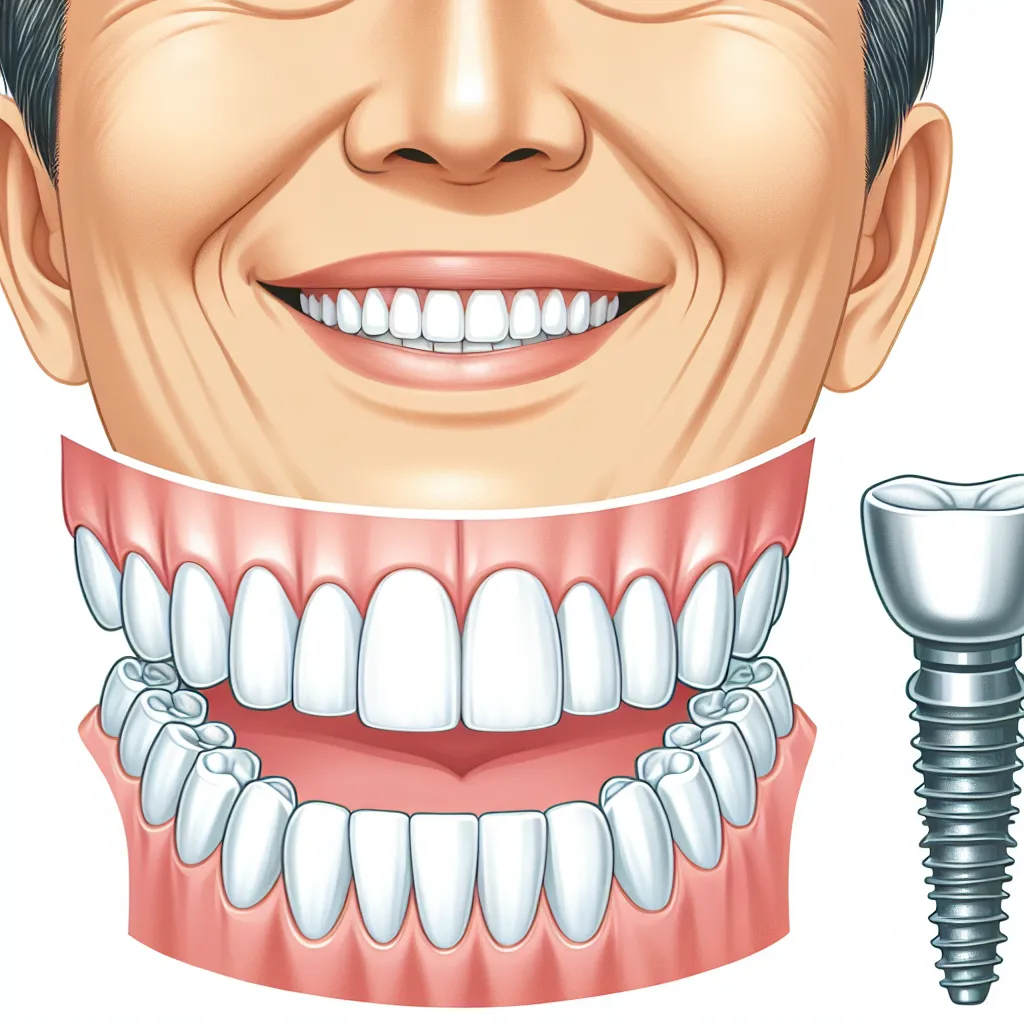Losing all your teeth can feel like losing a big piece of yourself, but whole mouth dental implants offer a chance to truly start fresh. They’re more than just a fix—they can restore confidence, comfort, and the ability to enjoy food again. The truth is, whole mouth dental implants aren’t just for celebrities or the wealthy; millions of regular people have found freedom in their new smiles. So, what’s the real story behind whole mouth dental implants, and are they worth the fuss? Let’s break it down, plain and simple.
What Are Whole Mouth Dental Implants—and Why Should We Care?
Whole mouth dental implants replace all the teeth in your upper jaw, lower jaw, or both, using a series of titanium posts anchored into your jawbone. Think of them as the foundation for a brand-new, full set of teeth. Instead of dealing with loose dentures or constant adhesives, you get a secure bite that feels almost like your original teeth. This isn’t just about looks—whole mouth dental implants can change how we eat, speak, and interact with others.
Why Whole Mouth Dental Implants Matter
- Comfort and Confidence: No more slipping dentures or hiding your smile behind your hand.
- Healthier Eating: Enjoy crunchy apples or chewy bread without worry.
- Jawbone Health: Implants stimulate your jawbone and help prevent bone loss (unlike traditional dentures).
The Nitty-Gritty: Pros, Cons, and Use Cases
We all want the upside, but let’s be real—there are tradeoffs with whole mouth dental implants. Here’s the straight scoop:
Key Benefits
- Permanence: Implants are fixed in place; you don’t remove them to clean.
- Natural Feel: They look and function much like natural teeth.
- Better Speech: No lisping or mumbling like with some dentures.
- Long-Term Investment: With good care, they can last decades.
Drawbacks
- Cost: Whole mouth dental implants are pricey upfront.
- Surgery Required: The procedure is more involved than getting dentures.
- Time: Healing and full restoration can take several months.
- Not For Everyone: You need enough healthy bone and good overall health.
Table: Quick Comparison
| Feature | Whole Mouth Dental Implants | Removable Dentures |
|---|---|---|
| Stability | Permanent, fixed | Removable, can slip |
| Chewing Power | High | Low to moderate |
| Jawbone Preservation | Yes | No |
| Maintenance | Brush like real teeth | Remove & clean |
| Lifespan (average) | 10–25 years+ | 5–8 years |
| Upfront Cost | Higher | Lower |
Who Typically Gets Whole Mouth Dental Implants?
- People with all or most teeth missing (upper, lower, or both arches)
- Those frustrated with dentures that never feel “right”
- Anyone wanting a permanent, low-maintenance solution
How Whole Mouth Dental Implants Work: Step-by-Step
Let’s demystify the process, because it’s less scary than it sounds.
1. Consultation and Planning
We start with X-rays, maybe a CT scan, and a detailed exam. The dentist checks jawbone health and creates a treatment plan.
2. Implant Placement Surgery
Small titanium posts are placed in the jawbone—usually 4 to 6 per arch. The number depends on your bone quality and the type of restoration chosen.
3. Healing and Osseointegration
This fancy word just means your bone fuses with the implant. It usually takes 3–6 months. In the meantime, you might wear temporary teeth.
4. Final Teeth Placement
Once healed, custom-crafted teeth are attached to the implants. These are designed to look and feel just like your originals.
Graph: Typical Timeline for Whole Mouth Dental Implants
Whole Mouth Dental Implants
Whole mouth dental implants are a permanent solution for replacing all your upper, lower, or both sets of teeth. Unlike traditional dentures, they provide stability, natural feel, and long-term durability. Typically supported by 4-6 titanium implants per arch, these implants anchor custom-made teeth, restoring your ability to eat, speak, and smile confidently.
Key Features:
- Permanent & Fixed: No slipping or adhesives needed.
- Bone Preservation: Stimulate jawbone, preventing deterioration.
- Aesthetic & Functional: Looks and functions like real teeth.
- Cost & Time: Higher upfront but long-lasting; usually completed in 3-6 months.
| Benefits | Drawbacks |
|---|---|
| Stability & Comfort | Higher initial cost |
| Long-lasting | Requires surgery |
| Improved oral health | Healing time needed |
Comparison with dentures:
| Aspect | Whole Mouth Dental Implants | Traditional Dentures |
|———|—————————-|———————|
| Stability | High | Low |
| Natural Feel | Yes | No |
| Bone Health | Preserves | Deteriorates |
Most suitable for:
– Those with significant tooth loss
– Good overall health
– Adequate jawbone density
Don’t wait! Reclaim your smile and confidence today. Contact us to schedule your consultation and explore your options for whole mouth dental implants.
Frequently Asked Questions About Whole Mouth Dental Implants
How long do whole mouth dental implants last?
With proper care, they can last between 10 to 25 years or more. The implants themselves are durable and can last a lifetime, while the replacement teeth may need replacing over time.
Is the surgery painful?
Most patients experience mild to moderate discomfort. Local anesthesia is used during the procedure, and recovery is generally easier than expected, with pain management options available.
Can I get whole mouth dental implants if I have significant bone loss?
Yes, many people with bone loss can still qualify for implants. Sometimes, additional procedures like bone grafting are necessary, but newer techniques can often help avoid extra surgeries.




